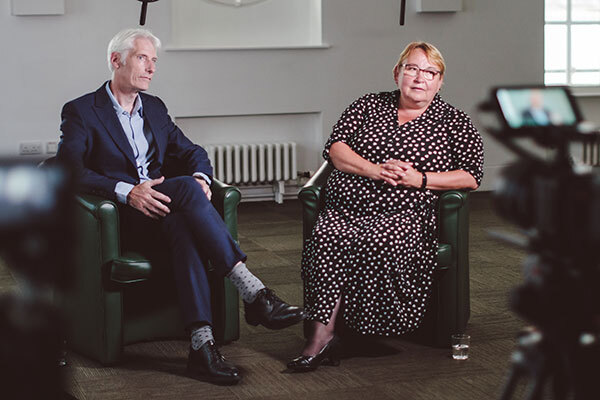[ad_1]

Terrie Alafat and Caroline Corby
Terrie Alafat is chair of Riverside; and Caroline Corby is chair of One Housing
Last week, Riverside and One Housing joined to form a 75,000-home landlord. Chairs Terrie Alafat and Caroline Corby explain how the new association intends to set about proving that it can do more than the sum of its parts
It was so straightforward in the end – a simple rule change and the submission of a short form to the Financial Conduct Authority. But this rather dull piece of administration marked something far more significant: last week, the planned partnership between One Housing and Riverside came to be. Or to put it more formally, One Housing became a subsidiary of the Riverside Group.
The truth is that these final acts of organisational marriage represented the culmination of an incredibly intensive process that has lasted more than a year. This has been no whirlwind romance. The two boards and executive teams have worked tirelessly.
On the one hand, this effort has been characterised by thorough planning, extensive consultation and intense due diligence. You’d expect no less. But more importantly we have spent quality time together – virtually and, when permitted, in person – exploring each other’s values and building a bond of trust, based on openness, honesty and a good degree of humility.
Of course the bottom line matters, but it is this more human side of the partnership that bodes so well for the future.
In September, our boards spent two days together in Liverpool. This gave us time away from business plans and intra-group agreements to talk at a more profound level about the type of organisation we want to forge – our shared values and aspired culture. At the very top of our list was a clear vision to put customers first, treat our people with dignity and respect, and value health and well-being.
Like others, we face huge challenges in investing in our homes to ensure they are safe, comfortable and warm; not to mention providing more of them for a country still facing an affordability crisis. However, we are particularly proud that ‘people’ have taken centre stage in our thinking as we move forward.
Of course this will not cut any ice with our customers and colleagues if we cannot demonstrate the tangible benefits of the partnership. We know that the true test of success will be whether we can evidence that together we are able to do more than we could have done apart.
“One of the key messages to come from the consultation is that our reshaped organisation needs to earn the trust of our customers by making their lives better and then demonstrating that we have done this”
We believe we can, and we have set out our ‘offer’ to customers through six specific pledges and put to them in one of the largest consultation exercises either organisation has ever undertaken, which was overseen by a joint panel of customers who were independently supported. These pledges articulate the additional stock investment, better services, extra tenancy support and more homes which we can deliver because of the additional financial capacity we will unleash.
However, our panel of customers told us that, while compelling, the pledges will mean little if they are not delivered, monitored and reported against. That’s Why our final pledge is to provide an account to customers each year, carefully tracking our achievements against the promises we have made.
One of the key messages to come from the consultation is that our reshaped organisation needs to earn the trust of our customers by making their lives better and then demonstrating that we have done this. This is where hard-nosed delivery and organisational values come together.
So reflecting on the year, what have we learned that may be helpful to others looking to go down this path?
First, a shared clarity of purpose is essential. Given the effort and cost of this type of process, from the outset there must be a clear focus on what a partnership of this nature can actually achieve and, just as importantly, for whom. One of the first things we said to each other is that if our partnership can’t be articulated in terms of benefits for customers, it isn’t worth doing. Being bigger is not enough.
Second, it is essential to engage customers early in the process and give them an active role. We flatter ourselves if we think that customers are really that interested in our constitutional arrangements – most just want a good service. But the two are inextricably linked, as one enables the other. It is vital that this is clearly articulated to customers and that they have an opportunity to have a voice.
“It is essential to strike up really good working relationships from the outset, founded on trust and honesty”
In our case that voice was pretty loud, with more than 3,600 customers engaging. Not only did they tell us what they think of the partnership – four times as many were for as against – they also gave us vital intelligence on current services – good and bad. This is gold dust that we will use as we plan improvements.
Finally, to start where we began, a focus on values is key. It is essential to strike up really good working relationships from the outset, founded on trust and honesty. If this doesn’t happen, ask why? Indeed, the trials and tribulations of a merger process are a great way of putting this to the test. If it doesn’t feel right, it probably isn’t.
We’re now very excited as we embark on the next stage of our journey together. We don’t underestimate the challenges ahead, but we believe we have the capacity, focus and good will to make a real difference.
Terrie Alafat, chair, Riverside; and Caroline Corby, chair, One Housing
[ad_2]
Source link






